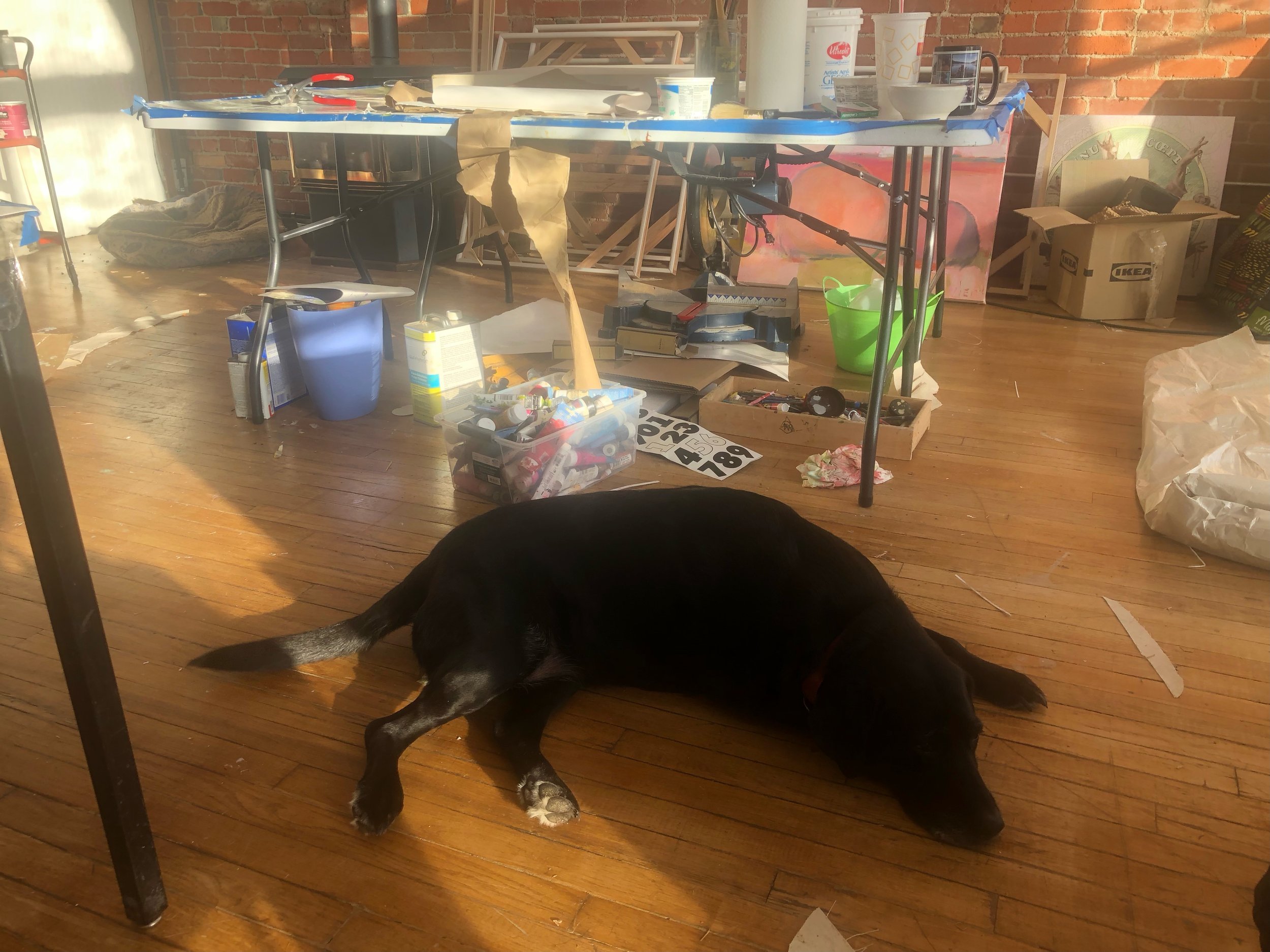ELLEN VIETH, JEAN ARNOLD: A CONVERSATION
ELLEN VIETH, JEAN ARNOLD:
A CONVERSATION
February 11 – May 14, 2022
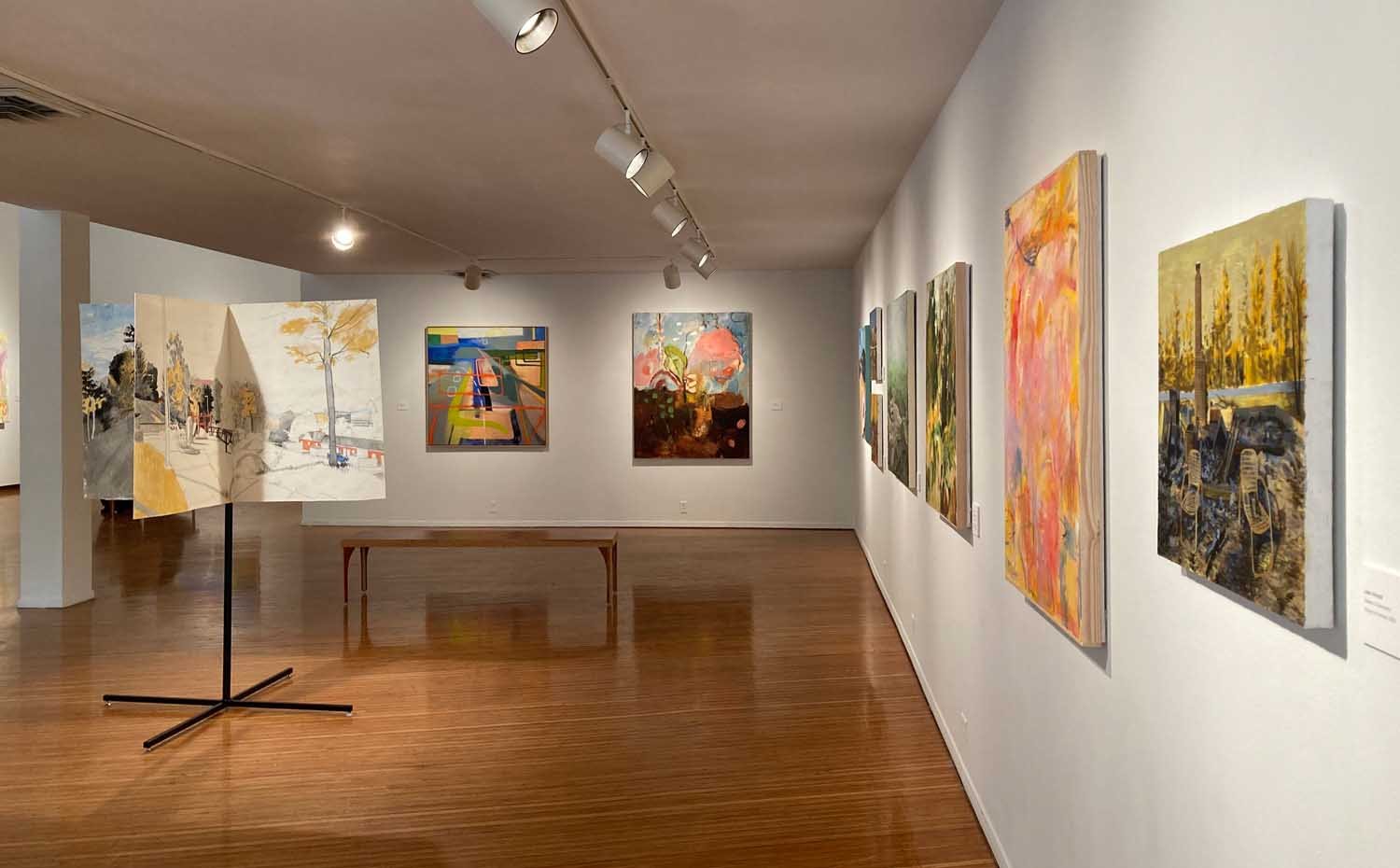
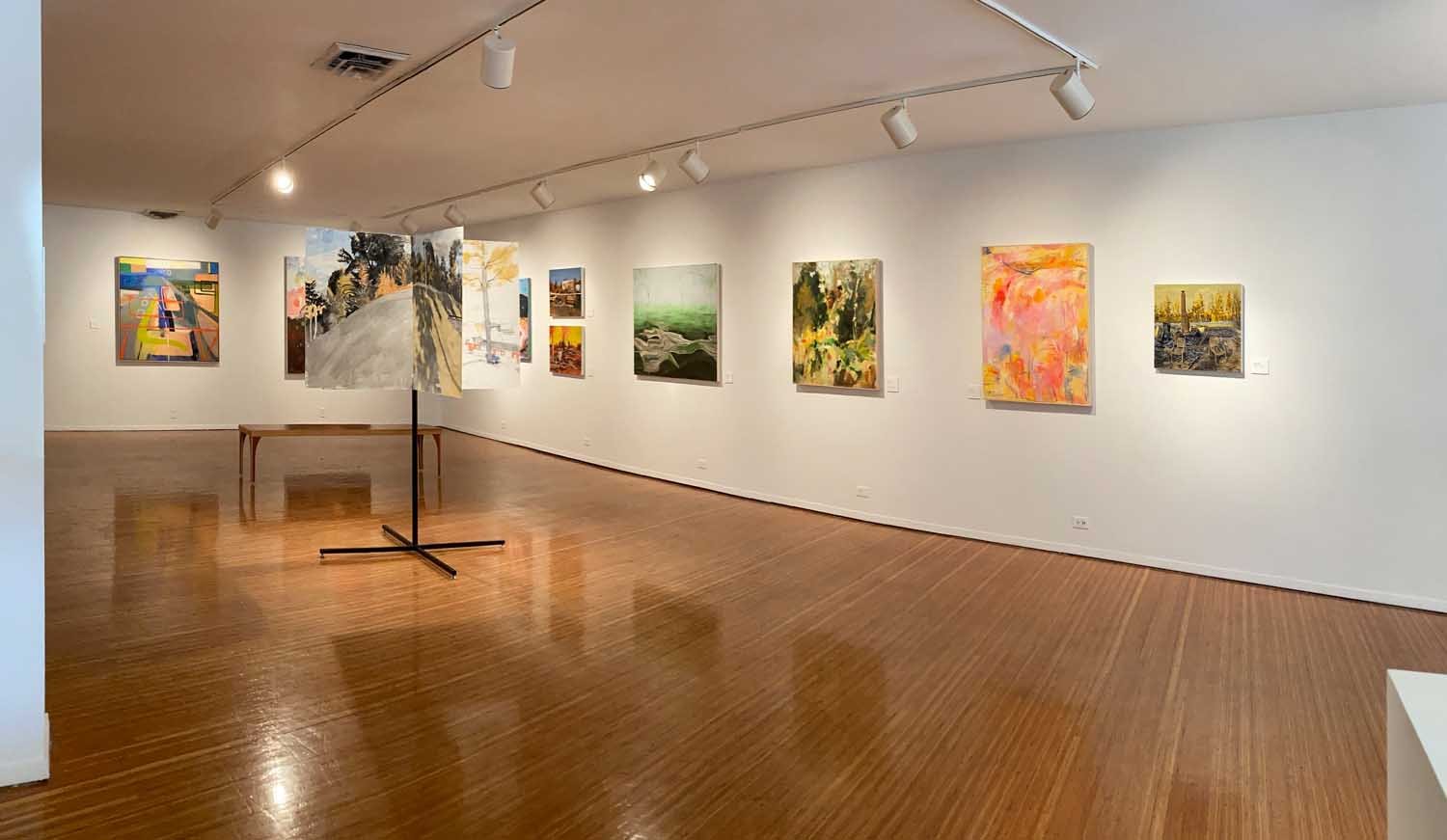
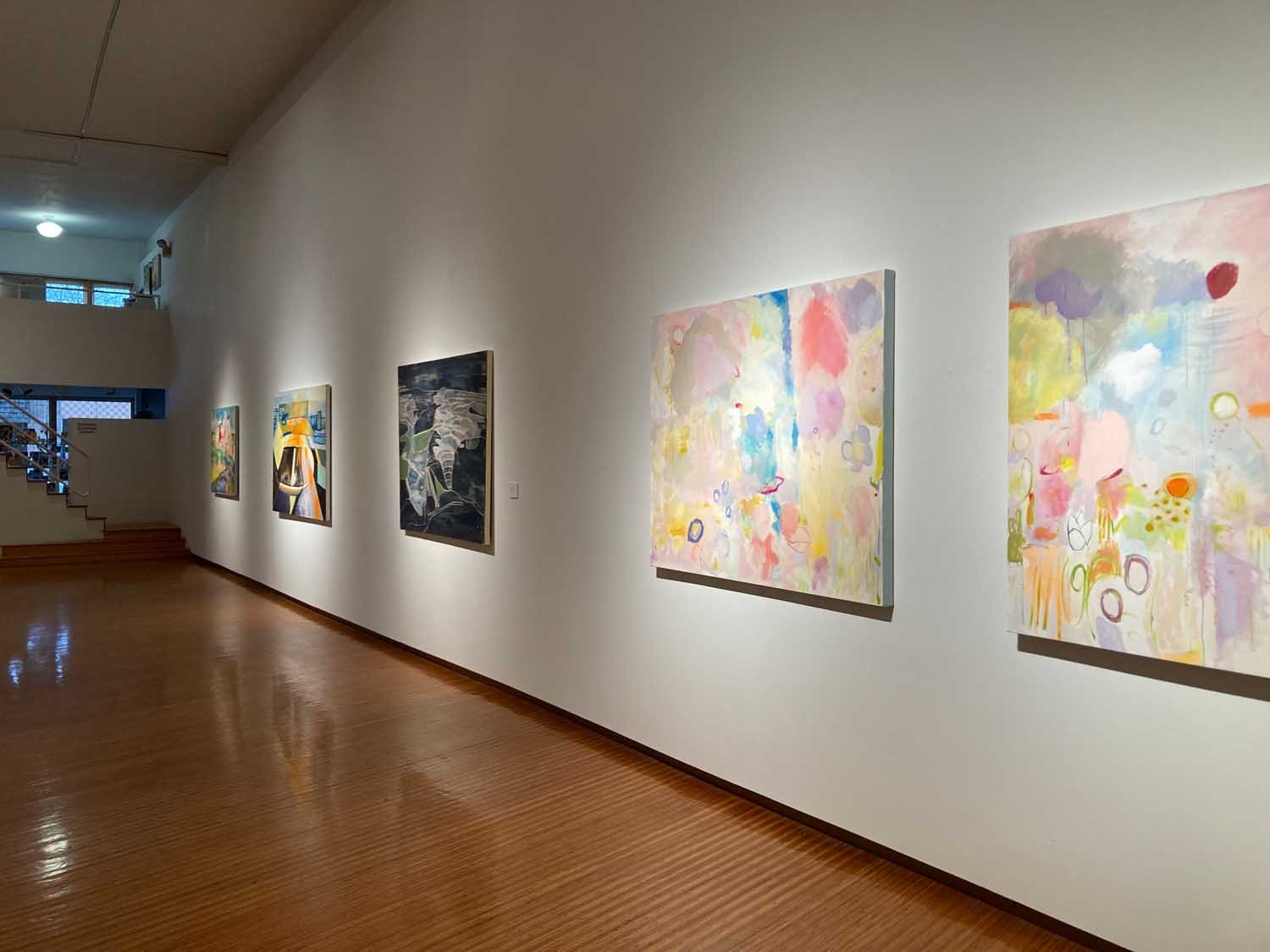
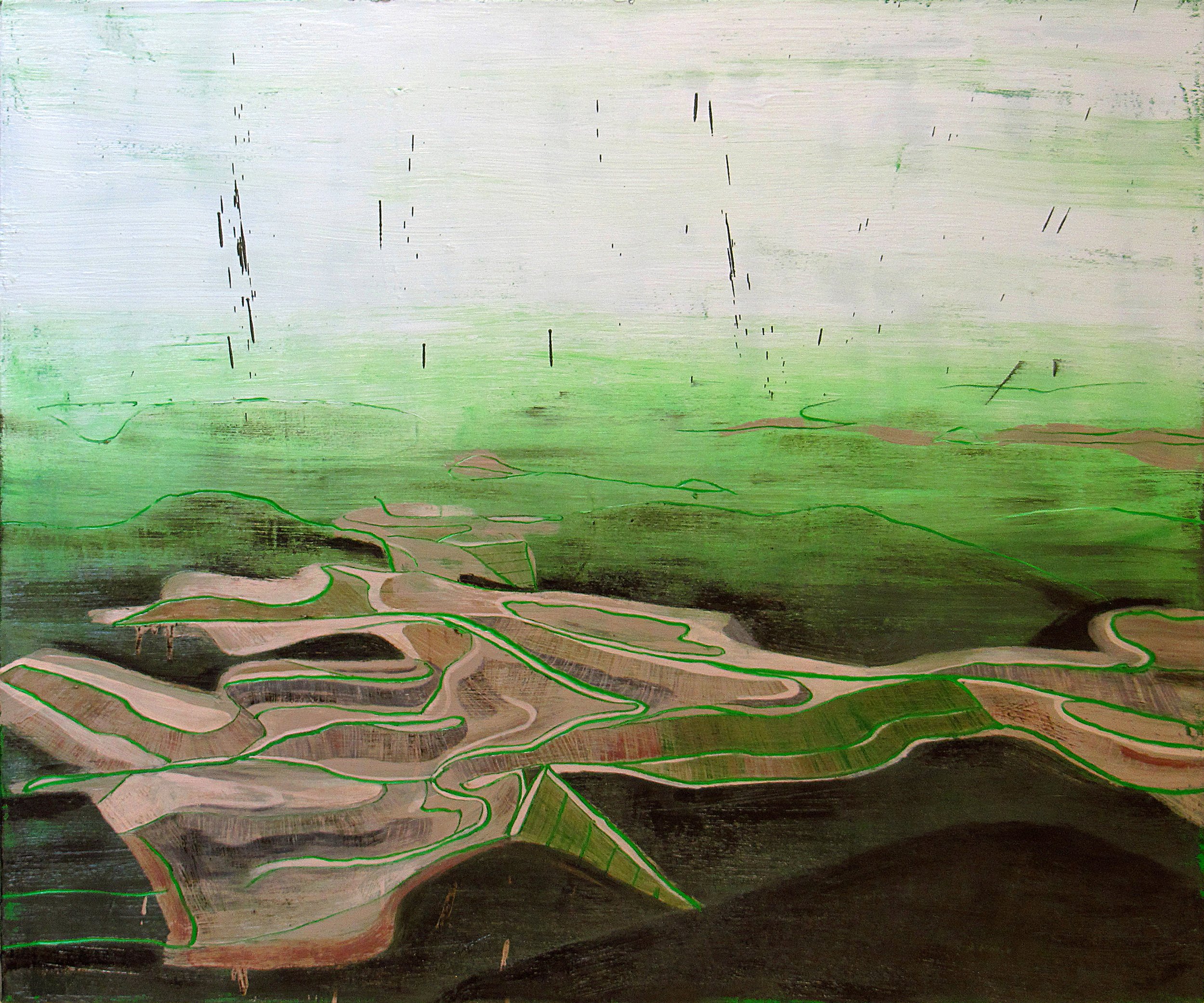
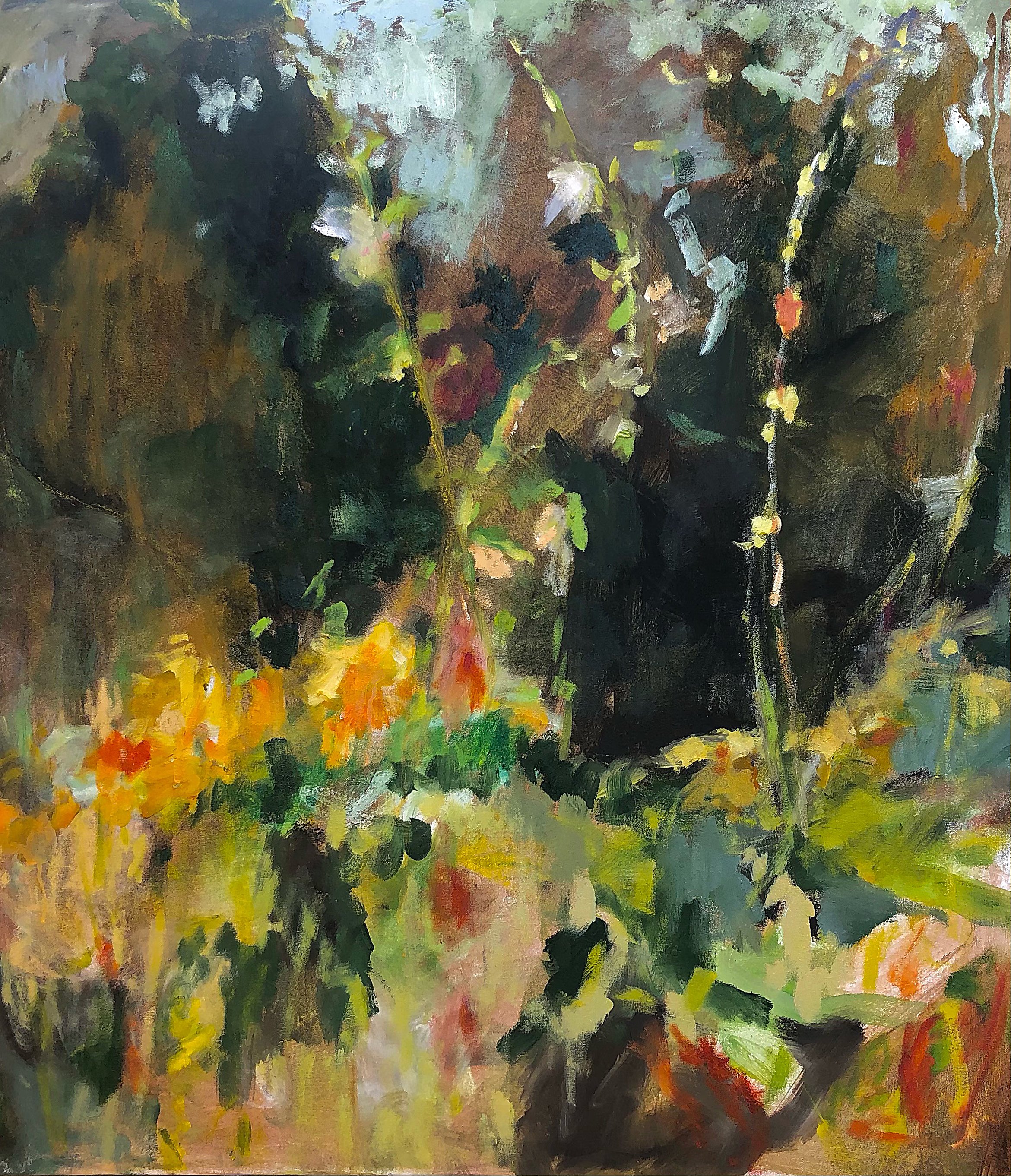
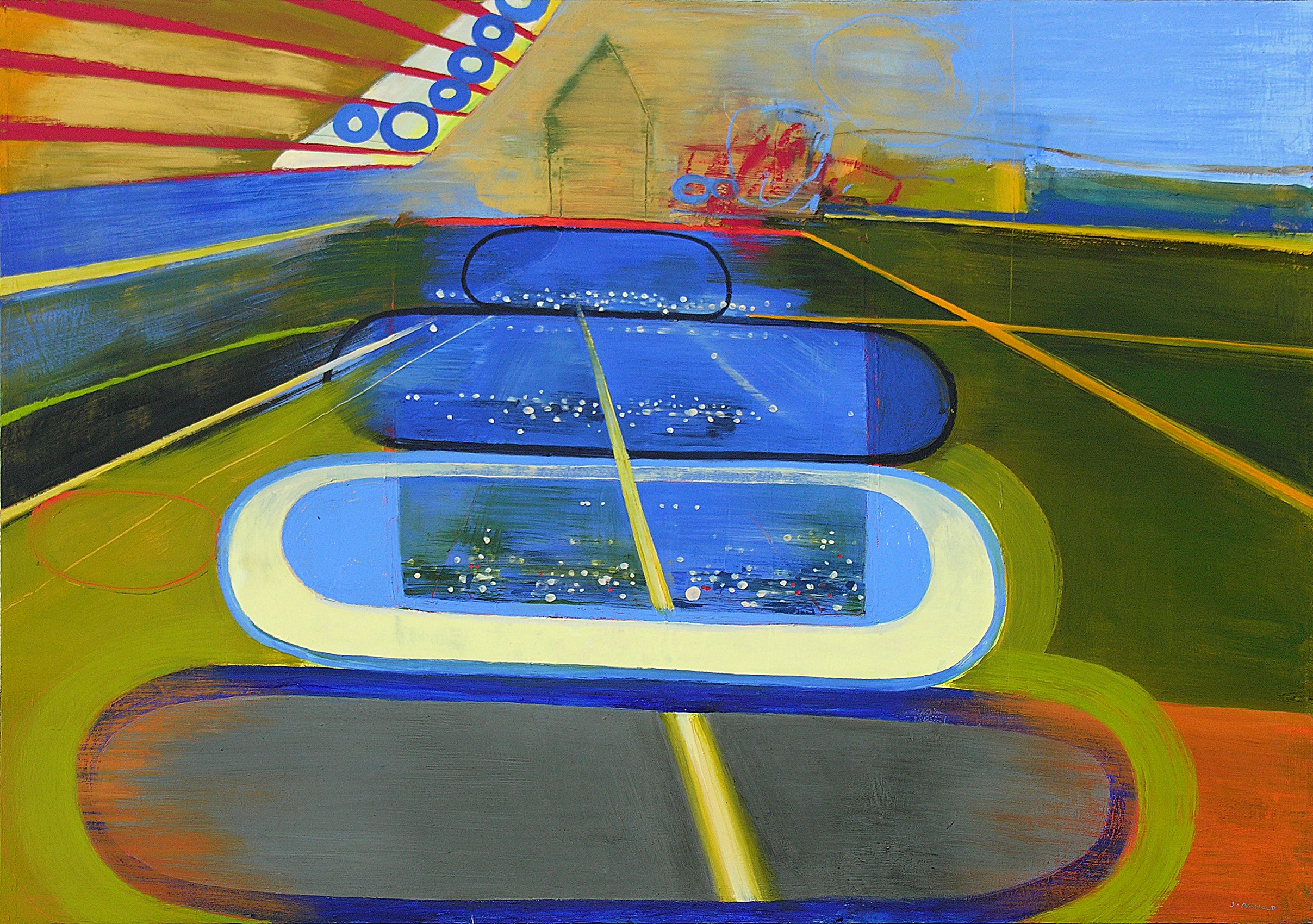
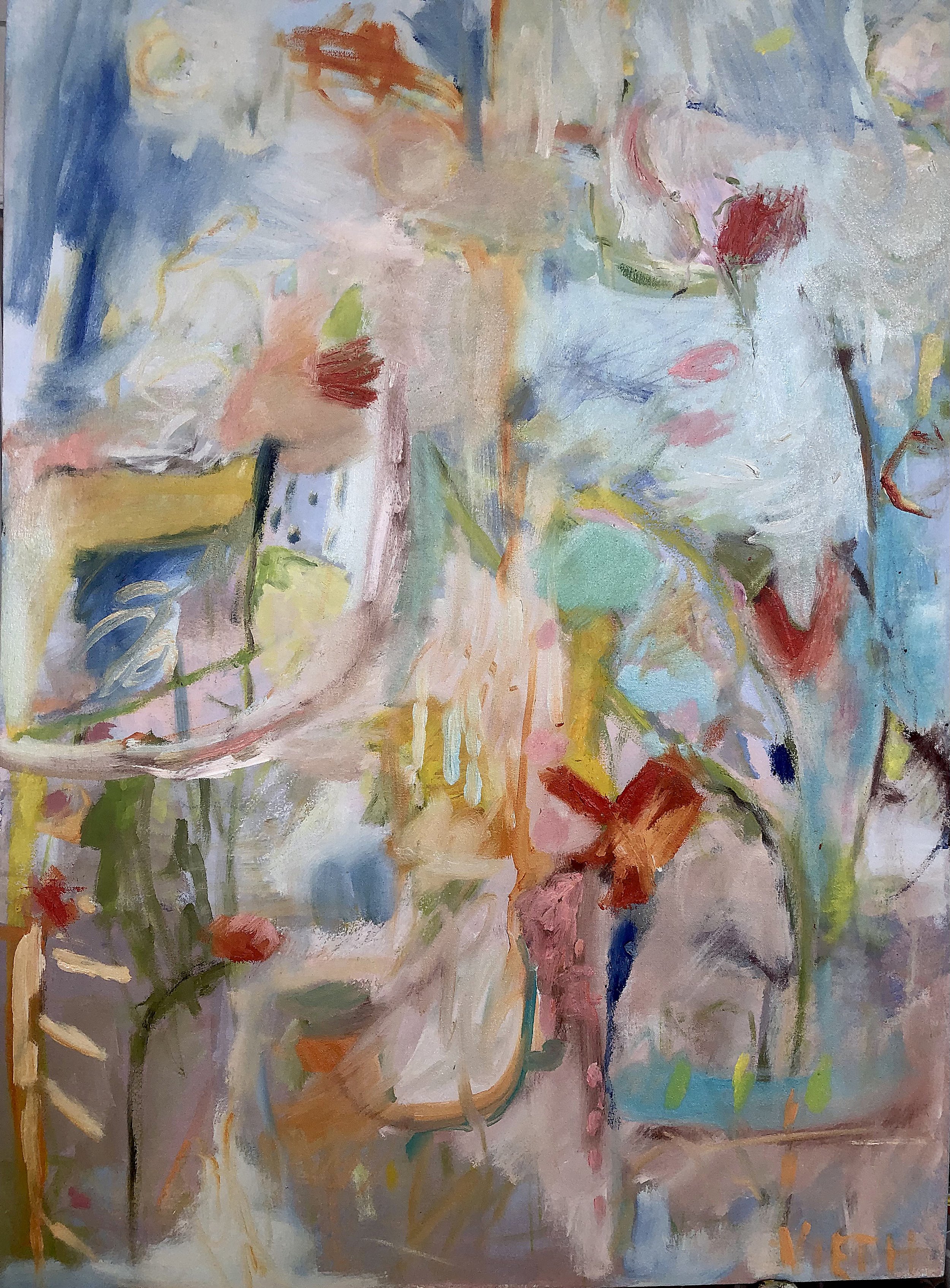
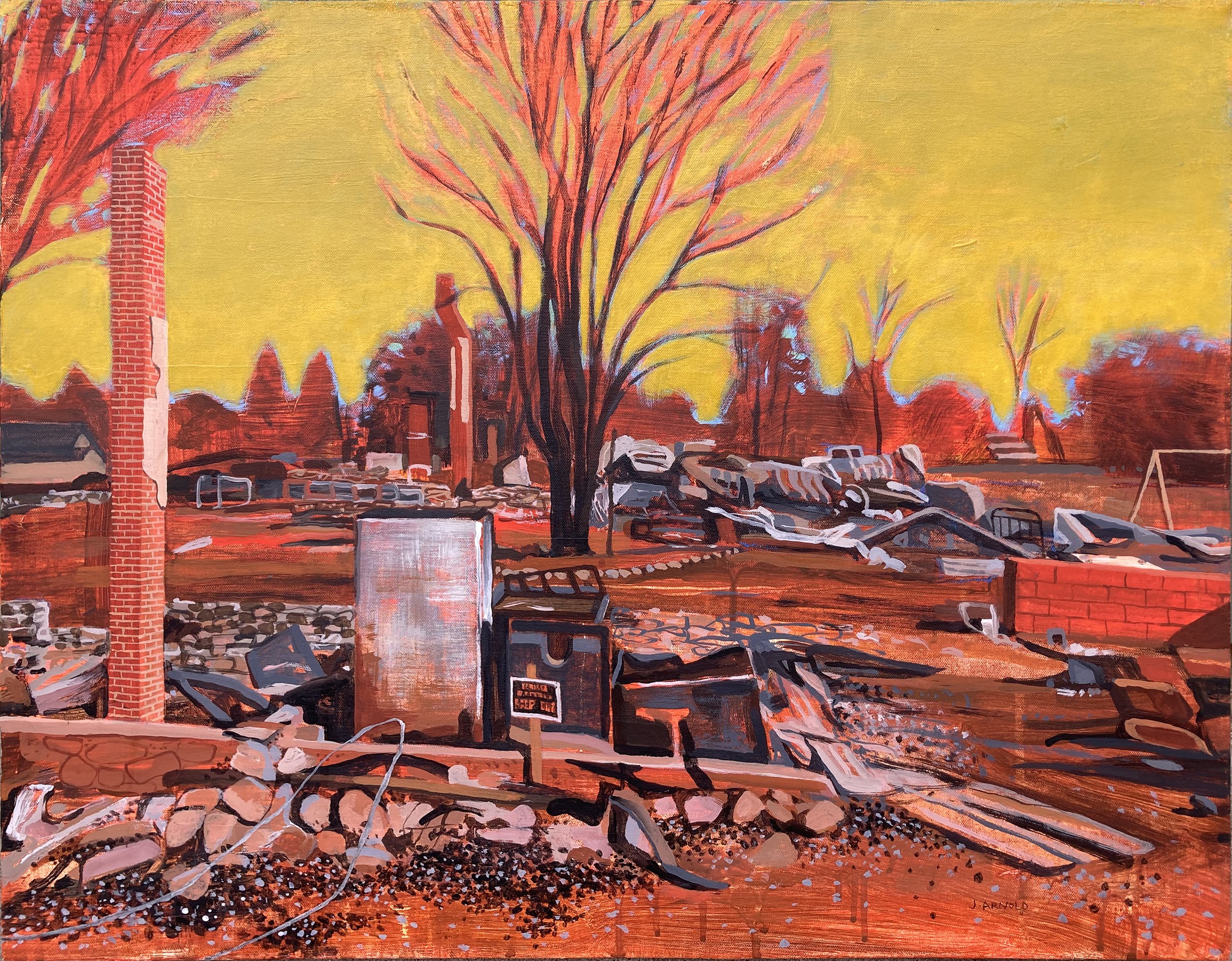
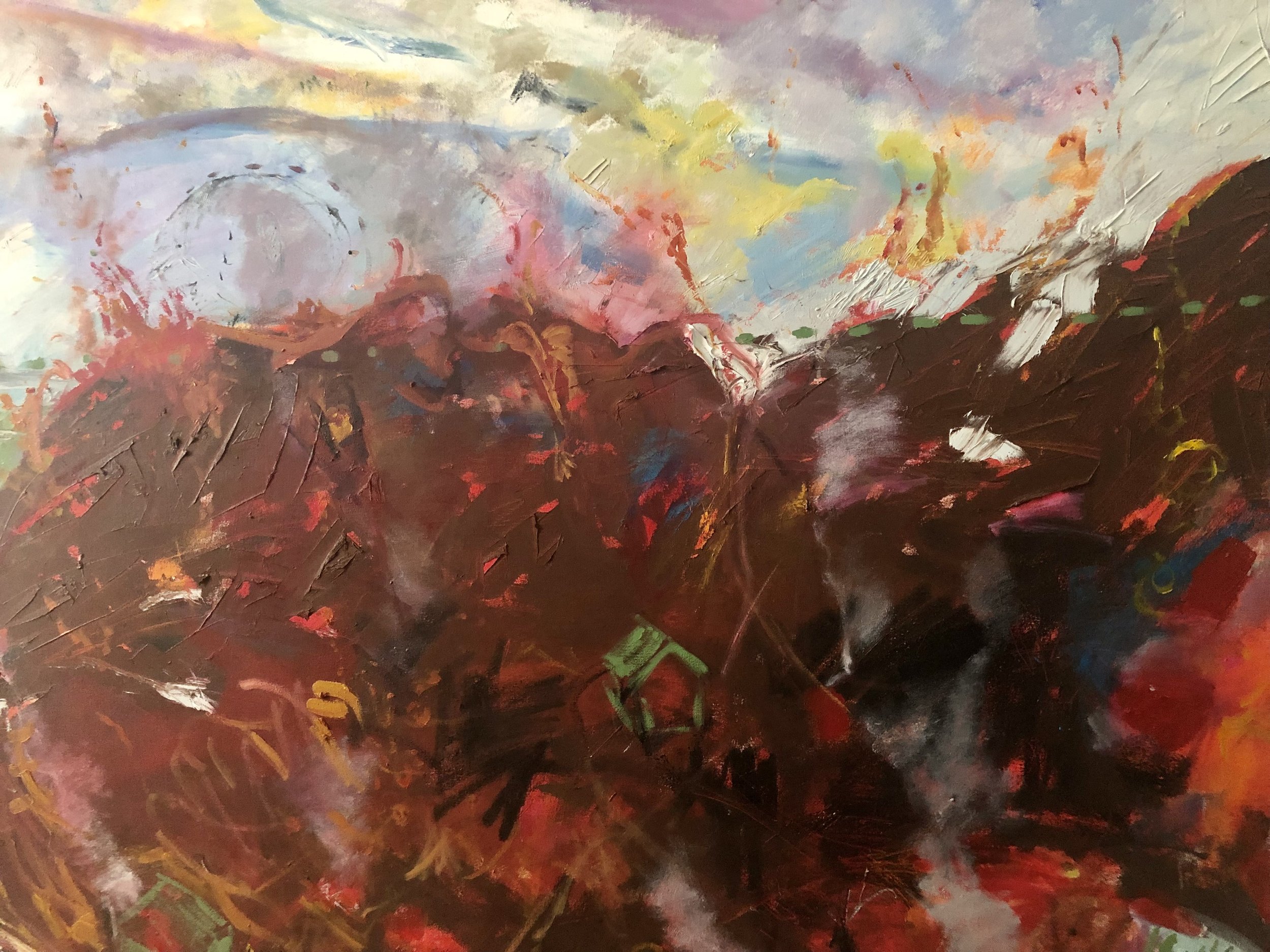
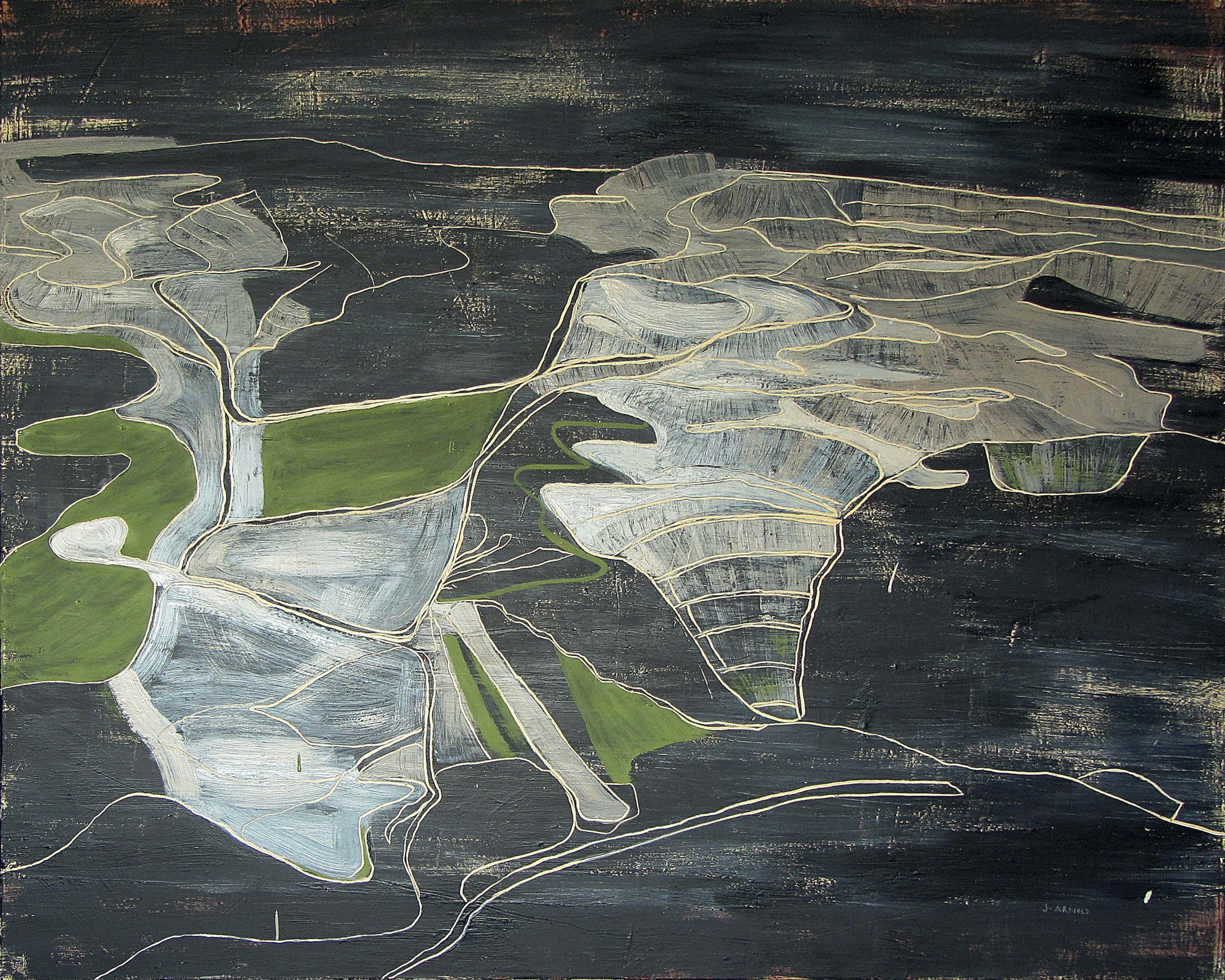
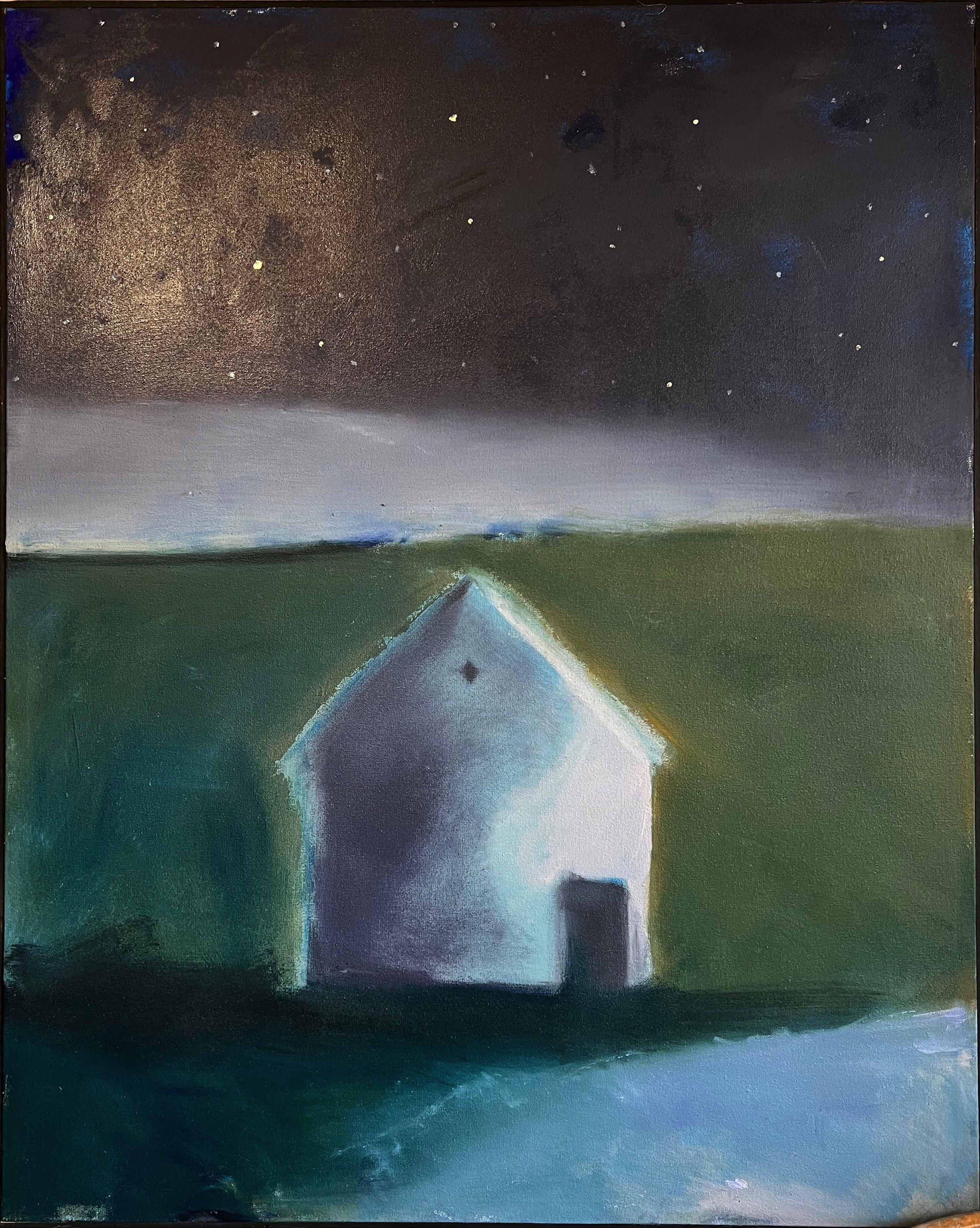
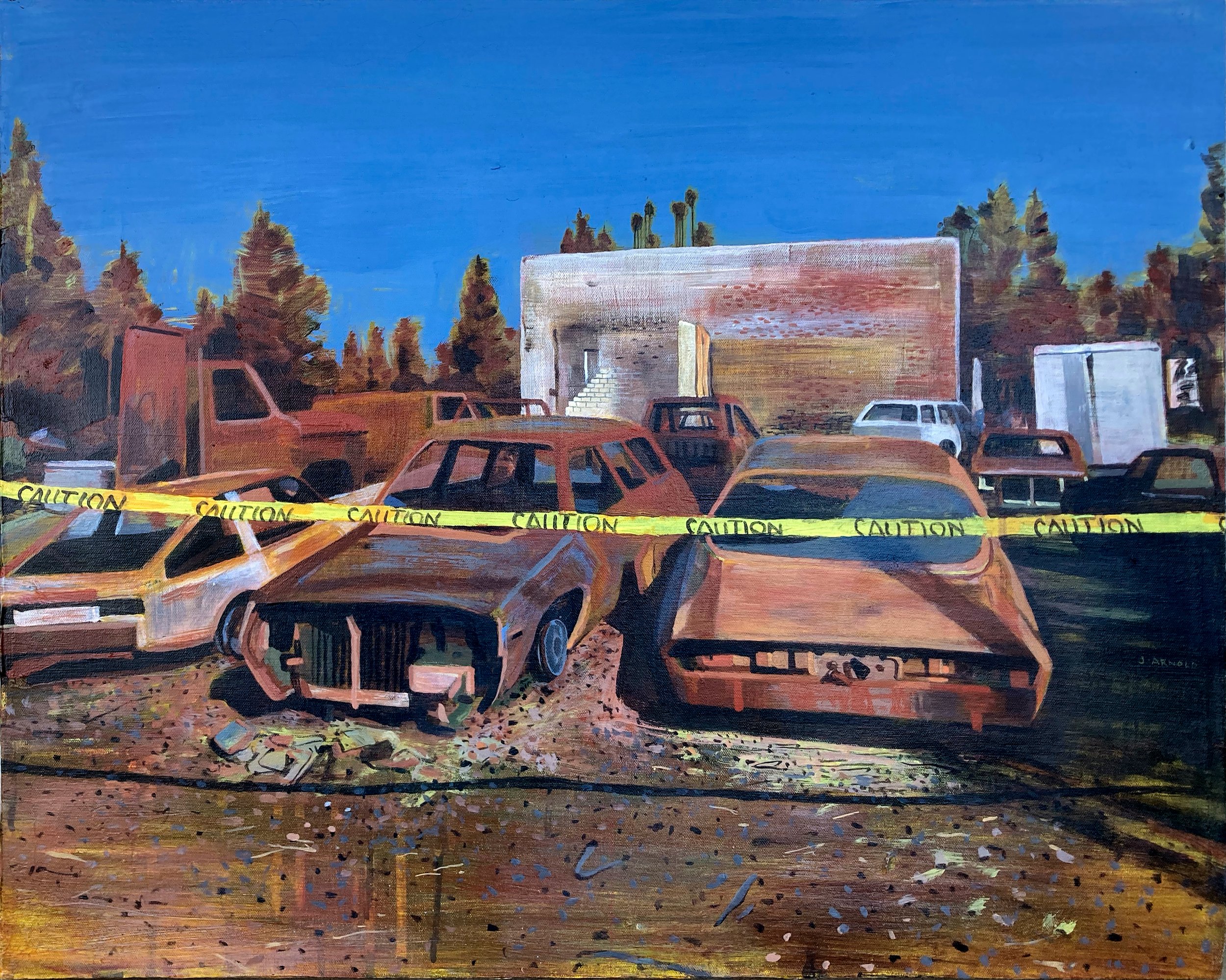
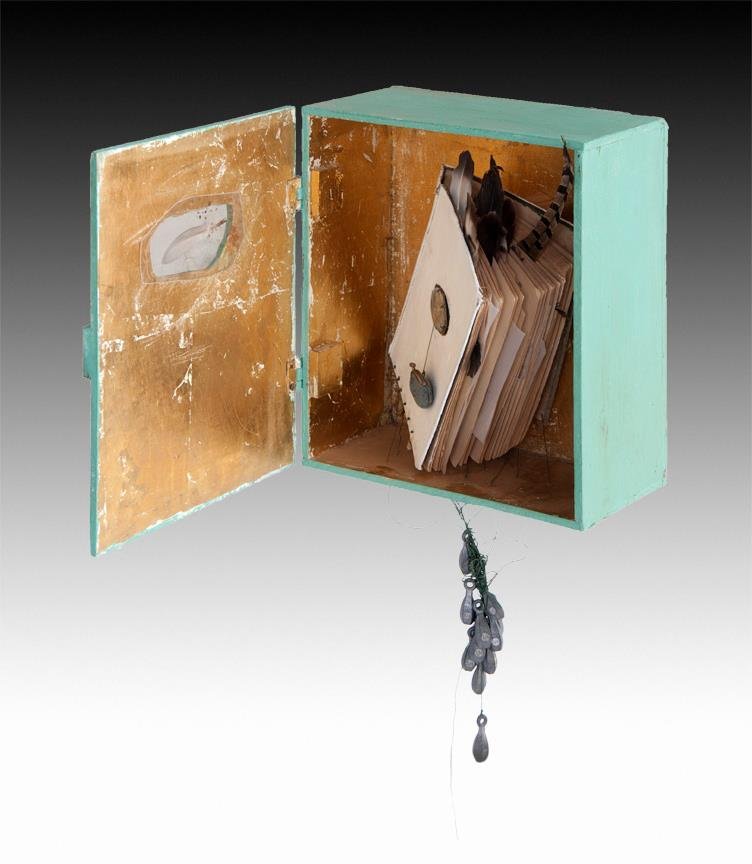
“You can’t be in an unconscious state and paint. Because whatever is in your mind, and not the subject matter, but the feelings that you have related to that subject matter, is what you’re going to paint. So, the beginning is not actually painting, you know. The beginning of painting is not you put down green, and then you like pink, and you put down pink. Painting’s not about that anymore than music is about this sound and that sound. It is really... It’s a whole thing, you know. But it’s something that you can’t resist putting on ... representing. And it’s something that drives you to expression. And it’s irresistible.”
- Agnes Martin
Curatorial Statement
The two are primarily painters. They had crossed paths since Jean Arnold moved back to the area a couple years ago but hadn’t had the opportunity to explore their artistic connections.
Moscow Contemporary invited the two artists to participate in an exhibit together. The work included was selected and/or created by the artists through the process of their conversation. The exhibit, nurtured by MosCo, embodies the passion, commitment and concerns of the artists.
“It’s a great thing to start from a clean slate. From one artist to two artists. From Drawing to painting. Having such incredible local resources as Jean and Ellen to work with, it’s wonderful to have them as part of our inaugural season,” says MosCo executive director, Roger Rowley.
“How truly wonderful, the chance to have such in-depth discussions with the entire group,” says Ellen Vieth.
About The Artists
Jean Arnold is a professional visual artist residing in Pullman, WA. She has exhibited her paintings and mixed media paperworks in numerous solo and group shows, regionally and nationally. Her work is found in many public, corporate, and private collections. She was included in a 2021 exhibit at the Missoula Art Museum, EDGE OF THE ABYSS: ARTISTS PICTURING THE BERKELEY PIT. In 2018, Jean had a solo show in the Weber County Library System in Utah. In 2014, her work was included in the exhibit Creation and Erasure at the Utah Museum of Fine Arts. In 2008, she had a solo museum exhibit at the Yellowstone Art Museum, in Billings, Montana.
Arnold earned her MFA from Northern Vermont University (previously Johnson State College), in conjunction with the Vermont Studio Center, where she received guidance from numerous artistic luminaries. She also studied at the International School of Art in Italy.
Ellen Vieth has a gallery and studio in Genesee Idaho. She curates small, exquisite exhibits from local and national artists at Little Pink House Gallery and Studio 84. Ellen previously served as the curator at the Center for Arts &N History at LCSC. She attended the Art Institute of Chicago, as well as Kansas City Art Institute, and has an MFA from the University of Idaho. Her work is in numerous collections, and her work has been exhibited nationally. She is represented by Art Spirit Gallery, Coeur D’Alene Idaho.
Vieth Studio
Women abstract expressionist painters have been having a moment of late, and the attention is well deserved. They were a group unto themselves, aware of the boys’ club, but as a group they could hold their own. I find their honesty most refreshing. From Pat Passlof — “the brush is the finger of the brain” — to Agnes Martin, who worked in abstraction in a very different way, the impetus and the goal for creative expression came down to understanding the smallest of moments, like a note, and following that path of notes to something glorious.
To me as an artist, everything you feel, everything you see and everything from your whole life goes through your mind, you know. You have to recognize it, go with it and really feel it. Trust that what you are now seeing unfold on the canvas is coming from inside.
It helps to be a gardener. To get your hands dirty. And to have a dog. These things are important to me. They serve as a beginning and are helpful in the process of keeping true to your expression; it’s humbling as well to realize your best efforts so often fall short. As someone who has been involved in the arts for many decades, I now realize without complaint that my focus is often closer to home.
What's fascinating in the dialogue with Jean, is that there is more that binds us together in the language of images and non-images than there is to separate us. Terrible beauty, which she is witnessing with some of her newer work, sits side-by-side with the “before” — like the natural beauty captured in images of my work — and “before” seems just as fleeting, if not more so. I’d like to think that extraction and fires and environmental destruction could in some way provide a moment of not only reflection but a dance with metaphors. To me, it seems easier to do with images that don’t take on the full impact of the ugly beautiful. Jean handles it beautifully. Grateful to have this discussion with all of you.
Arnold Studio
While we strive for moments of happiness and satisfaction, life presents times of adversity and sorrow. To be fully alive is to be present to all that we encounter: fulfillment and pleasure, but also challenge and pain. Art calls us to be alive to beauty and wonder, while playing a prophetic role: bearing witness to unsettling matters and grabbing attention before we can turn away.
We have access to an unprecedented array of material goods, yet we are not to ask where they are from, or at what cost to others and to the living world to obtain. Portraying extraction and its consequences renders uncomfortable truths: our very material basis is using up the Earth faster than it can replenish. Our system is based on a grand lie that this can continue forever. Widespread consequences are now unfolding in real time. In the face of all this, can we come to see our own hubris?
Contraction and difficult times are coming, whether we like it or not – how can we deal with this if we are spellbound by the techno-growth-extraction paradigm? We have no individual or collective roadmap for the coming post-extraction Reality.
Conversely, can we more fully embrace the simple goodness and wonders of life? Can we become more present to its mysteries? Ellen lives and creates from this place. She knows flowers intimately – growing them, arranging them, capturing them on canvas. She celebrates the nuances of the seasons. Yet she sometimes renders terrible beauty: her Fire In the Canyon piece is seared in my mind’s eye, depicting the death of a scorched bird.
Neither Ellen nor I shy away from beauty in both our respective bodies of work. Hers is a more full-throated embrace, whereas mine is often intermingled with the uncomfortable.
In the face of mounting crises, we need to see harm and beauty in equal measure to understand the consequences of our choices.
In conjunction with their exhibit
Ellen Vieth & Jean Arnold: A Written Conversation


